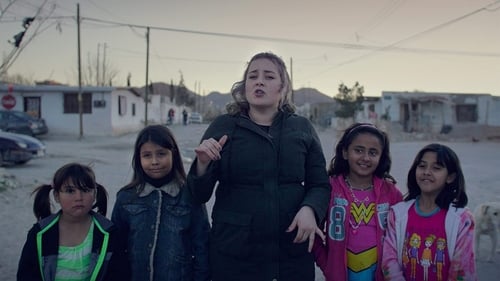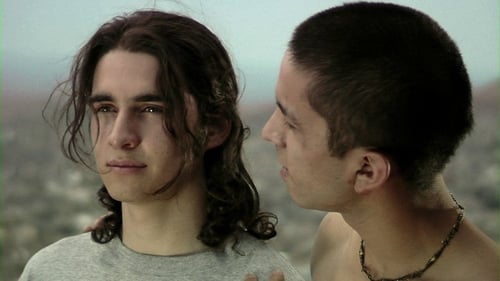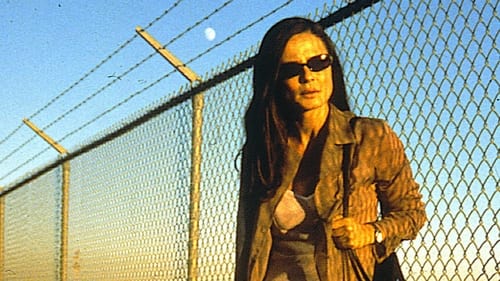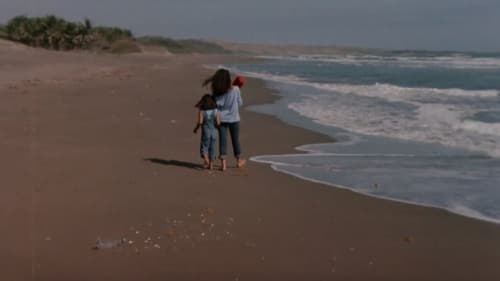María Novaro
Nascimento : 1951-09-11, Mexico City, Distrito Federal, Mexico
História
María Luisa Novaro Peñaloza (September 11, 1951, in Mexico City), better known as María Novaro, is a Mexican film director. She was among the first generation of female filmmakers to graduate from a film school in Mexico. She has made five feature films and fourteen short films. Within the Mexican film industry, she has been a cinematographer, sound mixer, director, screenwriter and editor. Today, Novaro is one of the best known Mexican filmmakers to come out of the New Mexican Cinema and her films express Millian's idea of cinema in feminine.

Thanks
Women who live in Ciudad Juarez organize safe havens for children in some of the most violent neighborhoods in Mexico. There, Diana, Joseph and Gael seek out the freedom that they once had on the streets, and try to heal the wounds that the violence of organized crime has caused them.

Producer
Siblings Dylan and Andrea set off with their new friends on a marvelous journey of discovery in search of long lost pirate loot.

Editor
Siblings Dylan and Andrea set off with their new friends on a marvelous journey of discovery in search of long lost pirate loot.

Writer
Siblings Dylan and Andrea set off with their new friends on a marvelous journey of discovery in search of long lost pirate loot.

Director
Siblings Dylan and Andrea set off with their new friends on a marvelous journey of discovery in search of long lost pirate loot.

Right at the heart of the debates on the discrimination of women in the film industry, this documentary raises questions, while offering a voice to women and their cinema. Catherine Breillat, Claire Denis, Mira Nair, Margarethe Von Trotta, Ulrike Ottinger, Micheline Lanctot, Rakshnan Bani-Etemad, María Novaro but also the names of the less visible directors of the general public. Joining the filmmakers are the voices and comments of producers, film specialists and archivists through whom our images are meticulously preserved.

Thanks
In the eyes of a foreigner practically any street of Mexico City’s Centro Histórico holds potential for a film. Life on the street deserves more than just the natural condition of observer anyone could have, it demands an extra attention. In a 100-meter radius, the sociological exuberance of the events going on is simply impossible to ignore. The street is a mise en scène in itself.

Screenplay
A young woman has to deal with her mother's degradation due to Alzheimer's disease.

Producer
A young woman has to deal with her mother's degradation due to Alzheimer's disease.

Editor
A young woman has to deal with her mother's degradation due to Alzheimer's disease.

Director
A young woman has to deal with her mother's degradation due to Alzheimer's disease.

Producer
Sebastián e Helena, dois irmãos adolescentes, moram num casarão numa pequena cidade mexicana. Sua mãe está moribunda e os dois vivem encerrados, distantes de tudo. Inseparáveis, eles mantém uma profunda relação de dependência. Até que a mãe morre e Juan, um jovem de classe baixa, surge em suas vidas. A aparição de Juan mexe com os desejos de ambos, obrigando-os a tomar decisões em relação ao amor, ao sexo e à amizade. Para crescerem, os irmãos terão de quebrar o vínculo inseparável que sempre os regeu.

Herself
Femicide is a growing phenomenon in Mexico. Since 1993, more than 450 women have been brutally murdered in Ciudad Juarez.

Writer
A woman steals from her drug-dealer boyfriend and runs away. She meets a sympathetic woman on the way who helps her escape.

Director
A woman steals from her drug-dealer boyfriend and runs away. She meets a sympathetic woman on the way who helps her escape.

Director
Documentary that celebrates 100 years of cinema in Latin America and talks about the origins and the development of cinema in this subcontinent. Its structure is based in 12 short films directed by various Latin American directors. These are: 1) "Los inicios", Iván Trujillo 2) "Cuando comenzamos a hablar", María Novaro 3) "Jugando en serio", Jacobo Morales 4) "De cuerpo presente [Las espirales perpetuas del placer y el poder] Cine Mexicano [1931- 1997]", Marcela Fernández Violante 5) "Cuando quisimos ser adultos", Edmundo Aray and David Rodríguez 6) "Cinema Novo", Orlando Senna 7) "Memorias de una isla, Juan Carlos Tabío 8) "Un grito, 24 cuadros por segundo", Julio García-Espinosa 9) "El día de la independencia", Federico García 10) "¿Sólo las formas permanecen?", Fernando Birri and Pablo Rodríguez Gauregui 11) "Todo final es un principio", Andrés Marriquín.

Editor
Tijuana is a mystical city and the scene of different stories, where the characters search for meaning in their lives.

Screenplay
Tijuana is a mystical city and the scene of different stories, where the characters search for meaning in their lives.

Director
Tijuana is a mystical city and the scene of different stories, where the characters search for meaning in their lives.

Director
A woman, who lives alone with her mother, invents a fantasy life to escape her reality.

Editor
A telephone operator from Mexico City tries to support a family and her passion for popular dance.

Writer
A telephone operator from Mexico City tries to support a family and her passion for popular dance.

Director
A telephone operator from Mexico City tries to support a family and her passion for popular dance.

Writer
A single mother sells clothes on the streets to support her daughter in Mexico City after the earthquake.

Director
A single mother sells clothes on the streets to support her daughter in Mexico City after the earthquake.

Writer
"Alguien se acerca", "Viajeros", "Lilí" and "Azul celeste", four stories directed by Ramón Cervantes, Rafael Montero, Gerardo Lara and María Novaro, respectively.

Director
"Alguien se acerca", "Viajeros", "Lilí" and "Azul celeste", four stories directed by Ramón Cervantes, Rafael Montero, Gerardo Lara and María Novaro, respectively.









